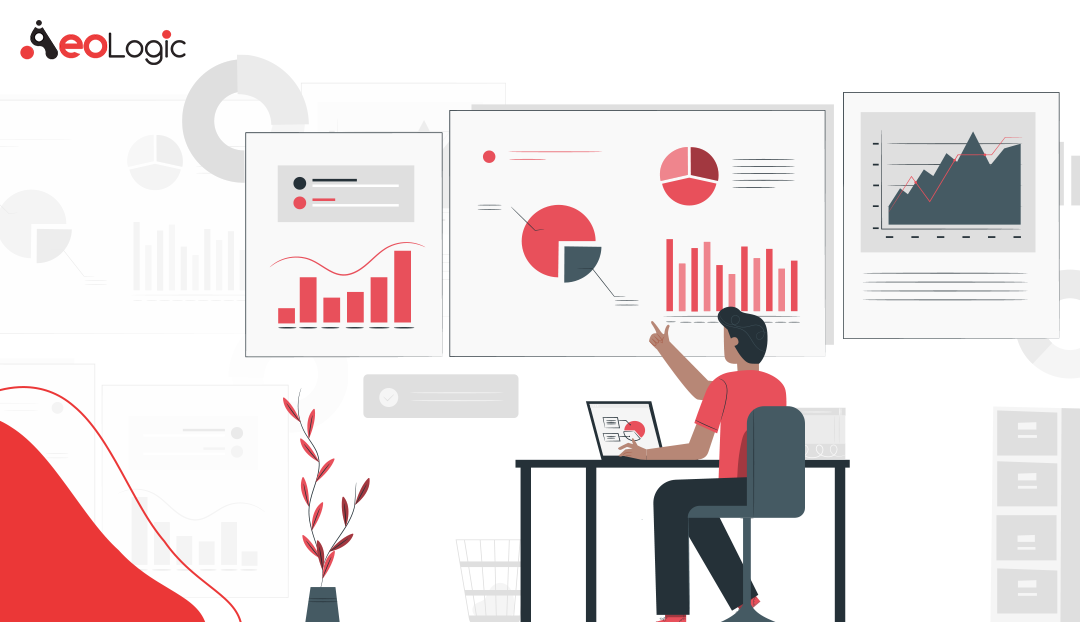Big data can guide entities in evaluating their data assets by expanding vigorous assessment techniques. In doing so, accounting industries need to evaluate which data is adequate, choose a longtime valuation technique, and identify key suppositions. There’ll even be furthering of data value through stewardship and control. The thought here is that accounting industries can assist in turning internal data sets into more important, secure, vigorous, and in-demand.
Role and Impact of Big Data
Utilizing big data in constructing decisions will derive more specific support in real-time. The nature of services that accounting experts prepare, also as their liaison with the choice makers of the Finance Industries world will totally vary thanks to the advancement of self-service data recovery. Furthermore, the roles that finance industries assume won’t just be limited to reporting financial data. By evaluating various data-sets, they’re going to be ready to determine the alternatives that decision-makers can use.
Data sharing will result in created values. Both the interior and external movement of knowledge is often bettered by Accounting Industries. This may save time and money and can escalate efficiency. However, there are some certain challenges in using big data. As more new data is becoming reachable, big data can depreciate rapidly. More so, the info value diverges counting on its usage. Further, self-service and computerization can erode the demand for definitive internal reporting while cultural impediments can disrupt the interior distribution of knowledge.
Evolution of Big Data
If I say that we’ve officially entered into the age of knowledge, it might not be farfetched. consistent with the planet Economic Forum, the entire data produced during a day would reach to 44 zettabytes in 2020. With the influx of such humongous amounts of knowledge, Finance Industry ought to get on their toes all the time to seek out valuable pieces of knowledge and insights from the vast ocean of data. However, they also got to comb out the unhelpful data.
Big Data comes into play during this regard. Aptly named, big data involves large volumes of knowledge of various varieties being generated at high velocity that is practically impossible to process by conventional processing systems. To explain this with an analogy – you would possibly have experienced your old computer hang once you open an important video file. This is often because the processor isn’t ready to process a large amount of knowledge of the video file. Although once we are talking about big data, the info amounts to non-perceivable proportions. as an example, Facebook alone generates four petabytes of information a day.
Implementations on Finance Industry
In the accounting industry also, the professionals have started realizing the implications of Big Data. If you’re a section of the accounting domain, big data can help in opening new and untouched avenues of knowledge insights and analysis. The mixing of massive data with advanced technologies like Blockchain, AI (AI) and Automation, and Machine learning helps you create a strong and automatic accounting process. From the increase of blockchain to the demise of Blockbuster, technology is disrupting every major industry. Accounting goes through a change that’s shifting traditional roles. Industry professionals will need cutting-edge data analytics skills to thrive during this changing landscape.
Traditionally, data analytics have been related to the technology industry. Today, all industries are driven by Big Data — these skills have universal application. consistent with a 2016 survey, 59% of employers say data science and analytics skills are going to be necessary for finance and accounting managers by 2020.
The challenge Finance Industry must consider data beyond its traditional form. in keeping with the 2017 report from IBM Marketing Cloud, 90% of the world’s data was created within the last two years. the sport changer is that the rise of big data. These large and sophisticated data sets are different from traditional data in terms of volume and variety. They can’t be analyzed with traditional tools like spreadsheets.
Usually, big data measured in terabytes and zettabytes, which is above the processing power of a typical server. It’s unstructured, and it can come from a spread of sources including social media accounts, telephone records, surveillance cameras, or maybe as information from devices like an Apple Watch or a Fitbit. it’s collected in motion, at intervals as short as a fraction of a second, and it isn’t always complete, consistent, or accurate.
For businesses, formatted, verified, and secured big data is employed to reveal patterns and trends associated with human behaviour. With analytics skills and tools, experts can adequately evaluate this data and gather insights that transform the way business decisions are made. This includes accountants, who now need a knowledge analytics skill set in order that they can use big data to unravel major problems. According to a piece of writing within the Wall Street Journal, the large 4 accounting firms combined global revenue from consulting and advisory services have risen 44% since 2012, compared with just 3% growth for auditing.
Achievement during this needs a solid foundation in technical accounting knowledge, technology forward data analytics skills, and therefore the ability to speak insights garnered from data. whilst advisory services achieve importance, it is necessary to recollect that big data impacts nearly every aspect of accounting, including audit, tax, and managerial accounting. These factors pose a spread of challenges for today’s organizations. Persistent with PWC global data and analytics survey, 52% of senior executives said they need previously discounted data they didn’t understand, while 25% simply lack the talents or expertise to form greater use of data.
Here are a number of the ways during which big data will have a big impact within the coming years.
- Audit
Auditing is an important part of the accounting industry because it helps in analyzing a company’s finances and assets. However, within the modern age, the traditional methods of audit don’t output equivalent results as businesses expect valuable insights.
Big data combined with data analytics is reconstructing the auditing process. The audit process is slowly moving from sample-based testing to the data-driven population-level audit that has all the key areas of a business.
Big data offers auditors with structured data in the meantime. Hence, they’ll explore more areas and identify outliers more effectively.
- Business Decisions
With the introduction of automation within the accounting industry, the accountants have made a move from the repetitive accounting tasks to the business advisory roles. They’re liable for creating financial plans for his or her clients and offering valuable insights.
Big data comes in handy when taking over the role of a trusted advisor for businesses. The accounting Industries can utilize big data to assist businesses to make informed decisions about their finances supported relevant data sets. Moreover, they will also create/formulate long-term financial strategies.
- Performance
The achievements of a business depend on a number of parameters like employees, core processes, and budget management. With the assistance of massive data with advanced analytics, you can track the performance of the business by defining new KPIs. Also, the massive sets of knowledge assist you to recognize market trends and stay before your competitors.
Big data, when used with advanced analytics, enables you to spot and analyze customer patterns, which may be accustomed to improve the customer experience.
- Risk Management
The success of the firm depends on identifying financial risks and rectifying them. With the assistance of massive data and predictive analysis, the CPAs can predict future risks and advise the clients to require the required steps.
By processing big data, CPAs can even identify potential frauds. This will be avoided any human intervention and energy by using algorithms on large data sets.
- Insights
Data visualization is the process during which the data is converted into a more perceivable form. Big data, when used with data visualization, offers improved visibility to Finance Industries into the data.
It results in better business insights because the big data sets are often segmented and transformed into meaningful information.
- Continuous Audit
In the charge of internal auditing, PICPA disclosed that data analytics is reconstructing the audit’s program by instituting to entities that explore ways on how to advance the cost/benefit ratio of their internal audit function or the idea of “continuous auditing”. It’s a compilation of audit evidence and gauges by an indoor auditor on information technology processes, systems, controls, and transactions and integrates a continuing risk assessment process.
Risk Management
Risks in the financial industry may be available any form – fraudulent activities, bad loans or failed investments. The first detection of those risks can help in preventing huge losses which otherwise could also be incurred. Big Data can help in analysis problems on a large scale and with the assistance of analytics divide them into smaller ones, which are manageable.
We have already seen a number of large financial institutions venture into Big Data and find it positively impact their business activities. At the end of the day, Big Data is going to be beneficial to both the banking or financial institutions and therefore the customers also. So, its adaptation is often seen in additional and more companies within the near future. If you’re looking to form data analysis work wonders within the banking system, you’ll choose an enormous Data Course. Big Data is the future.
Wrapping Up
The latest technologies like big data, AI, machine learning, automation, and blockchain will all be key contributors within the new-age accounting. Big data are often used with these technologies to predict future risk, identify market patterns, and enhance the risk management process.

Manoj Kumar is a seasoned Digital Marketing Manager and passionate Tech Blogger with deep expertise in SEO, AI trends, and emerging digital technologies. He writes about innovative solutions that drive growth and transformation across industry.
Featured on – YOURSTORY | TECHSLING | ELEARNINGINDUSTRY | DATASCIENCECENTRAL | TIMESOFINDIA | MEDIUM | DATAFLOQ









